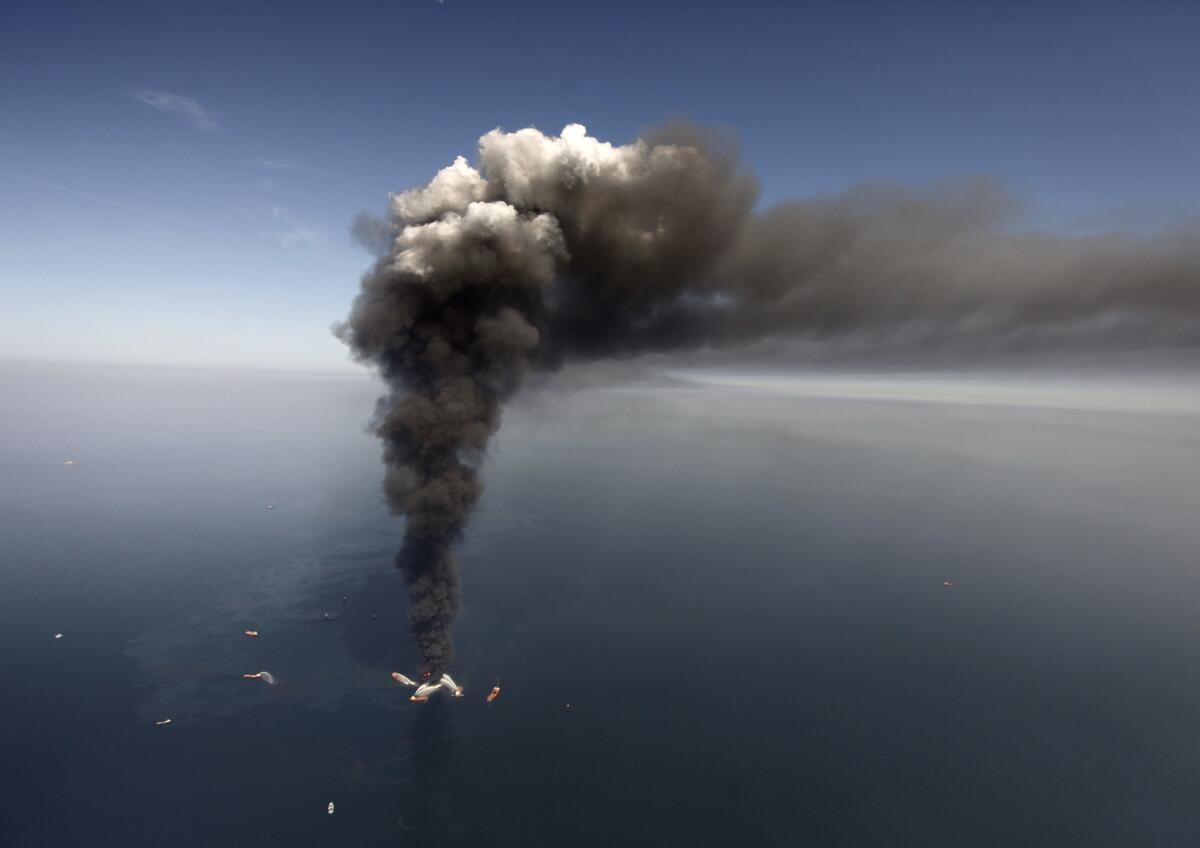On the gulf oil spill, BP has an 0-for-2 day in court

BP, the giant oil company that was responsible for the 2010 Gulf of Mexico oil spill, has been moving mountains to persuade the public that it’s being rooked by a lot of small businessmen filing claims related to the disaster. Adding to the irony, the company is claiming that settlement terms it agreed to are at fault.
Unfortunately for BP, there’s a whole category of people who aren’t buying its act: the federal judges hearing the oil firm’s complaints. On Monday, the U.S. 5th Circuit Court of Appeals ruled overwhelmingly -- in two separate decisions -- that BP doesn’t have a case.
That outcome should be of interest to “60 Minutes,” which this month aired an utterly credulous report taking BP’s side. We analyzed the “60 minutes” whitewash here.
To recap a story that we first laid out in February, BP agreed in 2011 to legal terms businesses would have to meet to receive payment for damages from the firm’s disaster compensation fund.
To keep things simple and avoid protracted litigation, which would serve no one, businesses within a reasonable distance of the shoreline had to demonstrate that their fortunes traced a particular pattern: a sharp drop in income immediately after the spill, followed by a sharp recovery some time later.
Those that met that test didn’t have to show any other evidence that their losses were spill-related. It was well understood at the time that this wide net would sweep in some businesses whose losses fit the pattern but actually had nothing to do with the spill. The company accepted that, in writing, on the grounds that a few false positives were a small price to pay to keep things moving along.
Then, as the settlement cost mounted, BP changed its tune. In newspaper ads, in news articles by BP-friendly publications, and ultimately on “60 Minutes,” it said it was overwhelmed by fraudulent claims. In court, it maintained that the terms it had helped write and had agreed to were, in fact, unconstitutional. It said, essentially, that the income pattern wasn’t enough, and claimants should also have to prove their losses had something to do with the spill -- exactly the tortuous process both sides had been trying to avoid.
BP has lost at every step. Its position has been rejected by the federal judge overseeing the damage awards, and repeatedly by the 5th Circuit Court of Appeals, which says the settlement terms are constitutional, and BP agreed to them anyway. Monday’s rulings, which denied the company’s motions for rehearings on two related cases it had already lost, pretty much put an end to its legal adventure at that level. Its next step, if it chooses to take it, is to appeal to the Supreme Court -- if the Court chooses to listen.
In a statement issued late Monday by spokesperson Geoff Morrell, the company took another bite at its worm-eaten apple, repeating its assertions about fraudulent claimants as if they’re true. “BP is disappointed that the full Fifth Circuit will not be considering the divided panel decisions relating to the compensation of claims for losses that have no apparent connection to the spill,” Morrell said. “The company is considering its legal options.”
It’s proper to note that this long legal battle has left many vitcims behind. Payments on business claims have been tied up by an injunction while BP’s motions are considered. About $1 billion in payments already approved by the claims administrator have been frozen, according to one estimate.
BP, which continually declares itself committed to doing “the right thing” by the Gulf Coast residents harmed by the Deepwater Horizon oil rig explosion and well blowout, is holding up the money. Its legal position looks like a loser. Isn’t it time it dropped the case, and let the money flow again to the communities it harmed?







